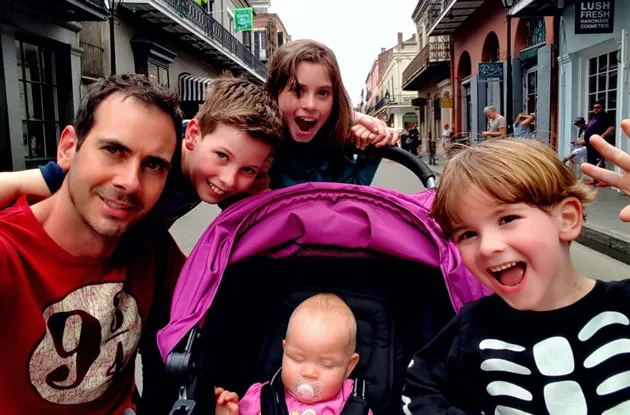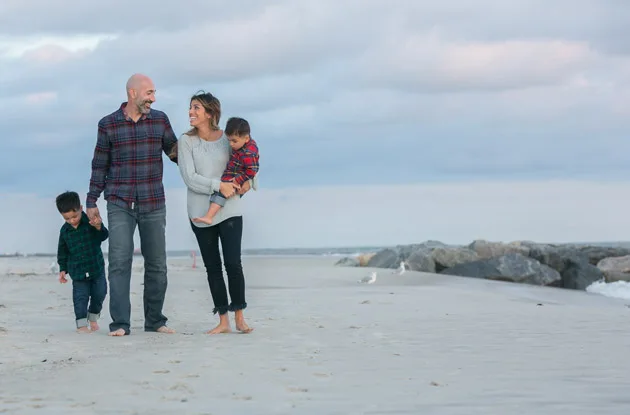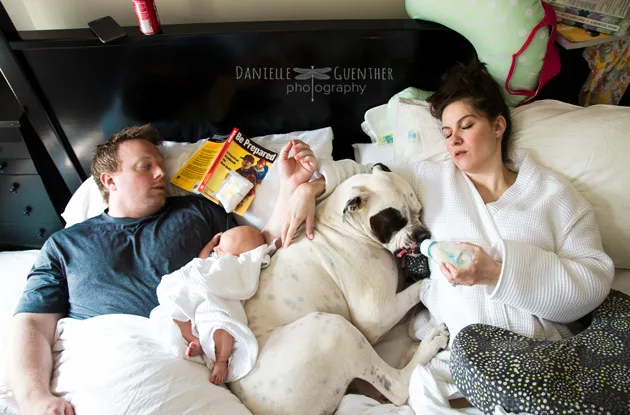 Every field has its thought leaders—individuals who are out ahead of the curve, blazing new trails with research and revolutionary ideas, challenging old wisdom. On Monday I was fortunate to listen in as five thought leaders in the world of parenting addressed a crowd of a few hundred (mostly mothers, a scattering of fathers, and some journalists as well) at the 92nd Street Y on the Upper East Side at a conference headlined “What Do You Really Need to Know as a Parent?” (no wonder so many people filled the auditorium!).
Every field has its thought leaders—individuals who are out ahead of the curve, blazing new trails with research and revolutionary ideas, challenging old wisdom. On Monday I was fortunate to listen in as five thought leaders in the world of parenting addressed a crowd of a few hundred (mostly mothers, a scattering of fathers, and some journalists as well) at the 92nd Street Y on the Upper East Side at a conference headlined “What Do You Really Need to Know as a Parent?” (no wonder so many people filled the auditorium!).
Renowned experts Ron Taffel, JoAnn Deak, Michael Thompson, Susan Linn, and Lydia Soifer shared the latest research—lots of it thought-provoking, some of it scary—and so many strategies for managing the challenges of modern parenthood.
As society changes, so does the job of parenthood.
“Ambivalence is a normal part of parenting,” said psychiatrist and TV commentator Dr. Gail Saltz in her introduction. “Acknowledging that you are learning as you go as a parent is not only authentic and healthy, it is a model for [your kids] for life.”

With so many books out there (often with divergent philosophies) and with so little time to delve into them all, having a presentation such as this is beyond appreciated. (With the best of intentions I have a number of the books by these experts on my shelf, but I have gone to them more on an as-needed basis—indexes are thumbed-through often, particularly for things like “monster-tantrums” and “won’t eat meat.”) I felt the topics were so well-honed, and the experts so well-chosen, that I walked away with a wealth of new ideas without having needed to spend my down-time with my nose buried in a book. Moreover, it’s the human connection (a theme that came up again and again as the experts addressed parent-child interactions) that is so important, and hearing them speak, laughing at their tales that resonated so much (as one audience member tweeted, “Did anyone else at #92YParenting conference feel the speakers were talking directly to them?”), and being able to ask questions raised the bar.
There were so many great topics, in fact, that I can’t share them all here—but I can provide highlights, follow up in our magazines with fleshed out stories on some of these topics (stay tuned!), and, most importantly, give you access to the whole presentation.
Yes, the whole conference “What Do You Really Need to Know as a Parent?” is available to ALL on the 92Y site. I encourage you to plug in your headphones and eat your lunch by the computer one day to watch it, implore you to post it on social media (your parent friends will thank you), and mostly, I hope you will talk about it, think about it, and take something useful away from it. And if you’ve still got a question or two about parenting your kids after watching the videos, go with your gut…and just laugh. As Dr. Saltz said to the crowd, “Personally, when I tapped out, I ended up making a joke—because it’s either laugh, or cry.”
Golden Nuggets from Dr. Ron Taffel
How many times have we all implored our own folks to just understand that parenting today is DIFFERENT? “It just is.” As an editor at a parenting magazine and as a mother I am conscious of this reality every minute of the day—but I never heard the “WHY” articulated quite as effectively as Dr. Taffel did in his talk. What’s changed?
Dr. Ron Taffel, chair of the Institute for Contemporary Psychotherapy who has a private practice in NYC and is one of the most respected and sought-after public speakers on child-rearing, tapped into his experience to surmise: Kids are growing up earlier, they are “more articulate and glib,” “more angry and frustrated”—they are affected not just by the anxieties of growing up, but by “the new anxiety,” that of everyday life. Moreover, parents in this era have much less certitude about our roles as did the previous generations. Sure, I thought—we have too much access to too much information—no one Dr. Spock tome to rely upon; and our own family units have dispersed in many cases, giving us few if any close relatives to rely upon to help negotiate the demands of raising a family. While Dr. Taffel echoed my thoughts, he added much more insight: “Post-Boomers have a very different mentality. You don’t believe down to your bones in privacy. You don’t believe in top-down hierarchy.” Mostly, though, we aren’t so sure—as the Baby Boomers and the Greatest Generation were—that ‘our way is the right way.’ Kids, Dr. Taffel said, are even having a difficult time rebelling, because who will they rebel against? There just ” isn’t a strong adult authority in the ways that there were generations ago.”
A wealth of soundbite-worthy advice followed, and I took copious notes (I even tested one of Dr. Taffel’s specific suggestions the very night I returned from the conference, about not negotiating with a toddler—and, to my great relief/astonishment/joy/disbelief, it worked). You’ll have to watch the conference video to get his full take, but I will reveal two awesome nuggets:
1 – “Know your dance.”
“The dance” is your schtick—the predictable reaction you’ll have to your child’s misbehavior when, as Dr. Taffel said, “you go from 0 to 60 in seconds…when you know you’re heading down a bad road” but just keep going. From research we know that kids as young as 4 (and likely younger) can mimic their parents’ dance with great accuracy—videotapes of parents and children together have borne this out for years. Your kid knows your dance, but you (or shall I say, “we”) do not.
Dr. Taffel suggests writing down “stories from home”—brief dialogues between you and your child—over a period of a few days. “You will, by the end of the week, end up learning what people come to my office and pay a lot of money to learn…what your dance is.”
2 – Stop back talk.
Stop it early on, but if you fail to do so, at least stop it when it reaches a point “that you would be embarrassed about if there were a camera in your house; think about it that way: Picture a third eye, and it will help you to recognize, ‘My God, this conversation needs to stop. That was not appropriate.’ ”
Some of My Favorite Quotes
“Dinner was at the same time every night: 6:30. ONE DINNER. One thing was served. Nobody had sensitivities, nobody had allergies, nobody had diets. There weren’t four different things that you had to offer your kids.” —Dr. Taffel
“It is brain abuse if your child doesn’t get enough sleep.” —Dr. JoAnn Deak, a widely recognized educator and psychologist whose most recent book is Your Fantastic Elastic Brain, and whose fabulous talk—all purely research-driven—I will write about in a future post (you’ll really want to read that one, I promise!)
“The best toys lie there until a child brings them to life.” —Susan Linn, cofounder and director of the coalition Campaign for a Commercial-Free Childhood, who spoke about building commercial-free time into our children’s lives—and, provocatively, about the power (real power) of media…another discussion I will explore in a future post
“Do not ask [your child] a question to which you know the answer.” —Dr. Lydia Soifer, a Brooklyn-born language specialist with more than 35 years experience in clinical practice, who spoke interestingly about the power of language (“Talk is not cheap,” she said) and how play allows us to solve problems, among many other compelling insights about “The Words We Use,” the name of her presentation
“The screen doesn’t love [your kids].” —Dr. Soifer
“For most kids, summer camp is Hogwarts.” —Dr. Michael Thompson, a clinical psychologist and consultant whose latest book is Homesick and Happy: How Time Away from Parents Can Help a Child Grow; his dynamic, funny, spot-on advice had me rethinking my notion that I’d never send my now-toddler to camp (again, stay tuned for more about his discussion in an upcoming post)
Please share this post so others can benefit from the profound wisdom—and warmth and perspective—offered by these experts!





















